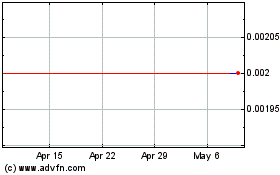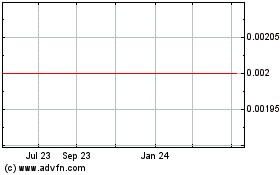Pivotal trial to focus on reduction of
hemoglobin A1c for patients diagnosed with type 2 diabetes and
obesity
GI Dynamics Inc. (ASX:GID):
• Primary Endpoint
Reduction of HbA1c at 1 year
• Planned Study Size
Stage I: 50 EndoBarrier / 17
control
Stage II (upon FDA approval): 130
EndoBarrier / 43 control
Total: 240 Participants (3:1): 180
EndoBarrier / 60 control
• Participant Timing
1 year EndoBarrier implant or control / 1
year follow-up
• Safety Review
Interim FDA Safety Review of 50
EndoBarrier participants
GI Dynamics Inc. (ASX:GID), a medical device company that is
developing EndoBarrier for patients diagnosed with type 2 diabetes
and obesity, is pleased to announce it has received approval of an
investigational device exemption (IDE) from the U.S. Food and Drug
Administration (FDA) to begin enrollment in a pivotal trial
evaluating the safety and efficacy of EndoBarrier in the United
States pending Institutional Review Board (IRB) approval.
The primary endpoint of the pivotal trial (GID 18-1) is
reduction in average blood sugar levels (HbA1c) at 1 year. The
pivotal trial will consist of randomized EndoBarrier implant and
control arms; both arms will receive identical lifestyle therapy
that complies with the most current American Heart Association
guidelines.
The study is approved for staged enrollment, with the initial
approval for treatment of up to 67 study participants including 50
EndoBarrier and approximately 17 control participants. Following
FDA review of the interim safety report, the company will apply for
approval to expand enrollment to a planned total study population
of approximately 240 participants. The FDA has recommended certain
study modifications that will be submitted by the company in an IDE
supplement.
“This pivotal trial offers an opportunity to evaluate the safety
and efficacy of EndoBarrier on a comprehensive basis,” said David
Cummings, MD, Endocrinologist at University of Washington and
Veterans Affairs Puget Sound Health Care System-Seattle and GI
Dynamics Scientific Advisory Board (SAB) member. “The GI Dynamics
SAB has worked closely with the company to design a study that
measures critical health metrics and applies best practices to
minimize clinical risk.”
“This IDE approval is the result of more than two years of
scientific investigation and research focused on clinical trial
design in collaboration with the FDA, with the intent of designing
a robust pivotal trial focused on the treatment of type 2
diabetes,” said Scott Schorer, president and chief executive
officer of GI Dynamics. “EndoBarrier remains one of the few
technologies focused on the primary target of achieving glycemic
control for patients diagnosed with type 2 diabetes that is not
bariatric/metabolic surgery or anti-diabetes medication.”
GI Dynamics leveraged clinical data from nearly 4,000
EndoBarrier implants since inception, the initial US clinical trial
(ENDO Trial), multiple investigator-initiated clinical trials, two
ongoing registries (ABCD Worldwide EndoBarrier Registry, German
EndoBarrier Registry), and the comprehensive EndoBarrier
meta-analysis recently published in the American Diabetes
Association’s (ADA) Diabetes Care journal.
Patient safety is of paramount importance to GI Dynamics. The
company and the FDA have agreed to a multiple stage pivotal trial
and the implementation of safety monitoring procedures during the
study. The approved Stage I will consist of the first 50
EndoBarrier recipients and approximately 17 control arm
participants. When the first 50 EndoBarrier recipients have reached
the 6-month (post implantation) follow-up, a Stage I safety report
will be provided to the FDA for review. Upon completion of Stage I
and with FDA approval, enrollment of the remaining participants is
planned for a total of 240 participants.
In addition, GI Dynamics and the FDA have agreed on several
specific safety events that, if reported, will cause enrollment to
be stopped while the GID 18-1 Data Safety Monitoring Board, GI
Dynamics, and the FDA conduct a review of all study safety data to
determine whether the study may continue.
The specific safety events that would cause the enrollment to
stop during Stage I are presented as follows:
- One (1) hepatic abscess requiring a
procedure other than image-guided fine needle aspiration (FNA)
and/or oral antibiotic therapy
- Three (3) hepatic abscesses requiring
oral antibiotics with or without fine needle aspiration
- One (1) instance of device-related
bleeding requiring transfusion or embolization or Intensive Care
Unit (ICU) care
- Three (3) instances of endoscopic
intervention that includes cauterization or endoscopic clipping of
a bleeding lesion
GI Dynamics, in conjunction with its scientific and medical
advisors and leveraging significant investigative work and
analysis, has implemented multiple clinical risk management steps
to mitigate the risk of occurrence of all known safety events. This
includes the elimination of proton pump inhibitors (which are
thought to increase liver abscess risk), refinement of inclusion
criteria, addition of multiple exclusion criteria, the
implementation of a higher threshold of failed medical therapy
prior to EndoBarrier treatment, and increased patient monitoring
with the intent of reducing patient risk and addressing clinical
issues identified in the past, such as liver abscess.
“The GID 18-1 trial design is intended to address the patient
population that has failed lifestyle and medical therapy prior to
insulin use,” said Schorer. “This study will gather data on insulin
sensitivity, the avoidance of insulin use, cardiovascular risk
factor reduction (as measured by blood pressure, cholesterol, and
triglycerides), and the reduction of severity of specific types of
liver disease: nonalcoholic fatty liver disease (NAFLD) and
nonalcoholic steatohepatitis (NASH). This pivotal trial is a
substantial undertaking that is intended to create significant
clinical value. The team of employees, clinicians, and directors of
the company are committed to investigating the safety and efficacy
of EndoBarrier to treat type 2 diabetes and associated
comorbidities.”
Subject to securing additional financing in 2018, GI Dynamics
expects to complete enrollment of Stage I of the study during the
first half of 2019.
Further information will be provided during the company’s next
shareholder update call, scheduled for 20 August 2018 at 6pm EDT │
21 August 2018 at 8am AEST. The company will provide full meeting
details shortly.
About GI Dynamics
GI Dynamics Inc. (ASX:GID) is the developer of EndoBarrier, an
endoscopically delivered device therapy for the treatment of type 2
diabetes and obesity. EndoBarrier is not approved for sale and is
limited by federal law to investigative use only. Founded in 2003,
GI Dynamics is headquartered in Boston, Massachusetts. For more
information, please visit gidynamics.com.
Forward-Looking Statements
The announcement may contain forward-looking statements. These
statements are based on GI Dynamics management’s current estimates
and expectations of future events as of the date of this
announcement. Furthermore, the estimates are subject to several
risks and uncertainties that could cause actual results to differ
materially and adversely from those indicated in or implied by such
forward-looking statements.
These risks and uncertainties include, but are not limited to,
risks associated with our ability to continue to operate as a going
concern; our ability to raise sufficient additional funds to
continue operations and to conduct the planned clinical trial of
EndoBarrier in the United States (GID 18-1 Trial); our ability to
execute the GID 18-1 Trial under FDA IDE; our ability to enlist
clinical trial sites and enroll patients in accordance with the GID
18-1 Trial; the risk that the FDA stops the GID 18-1 Trial early as
a result of the occurrence of certain safety events or does not
approve an expansion of the GID 18-1 trial; our ability to maintain
compliance with our obligations under our existing convertible note
and warrant agreements executed with Crystal Amber Fund Limited,
including our obligations to make payment on the relevant notes
that are due in December 2018; obtaining and maintaining regulatory
approvals required to market and sell our products; the possibility
that future clinical trials will not be successful or confirm
earlier results; the timing and costs of clinical trials; the
timing of regulatory submissions; the timing, receipt and
maintenance of regulatory approvals; the timing and amount of other
expenses; the timing and extent of third-party reimbursement;
intellectual-property risk; risks related to excess inventory;
risks related to assumptions regarding the size of the available
market; the benefits of our products; product pricing; timing of
product launches; future financial results; and other factors,
including those described in our filings with the U.S. Securities
and Exchange Commission.
Given these uncertainties, one should not place undue reliance
on these forward-looking statements. We do not assume any
obligation to publicly update or revise any forward-looking
statements, whether as a result of new information or future events
or otherwise, unless we are required to do so by law.
View source
version on businesswire.com: https://www.businesswire.com/news/home/20180812005037/en/
Investor RelationsUnited States:GI Dynamics Inc.Janell
Shields, +1 781-357-3280investor@gidynamics.com
Gi Dynamics (ASX:GID)
Historical Stock Chart
From Nov 2024 to Dec 2024

Gi Dynamics (ASX:GID)
Historical Stock Chart
From Dec 2023 to Dec 2024
